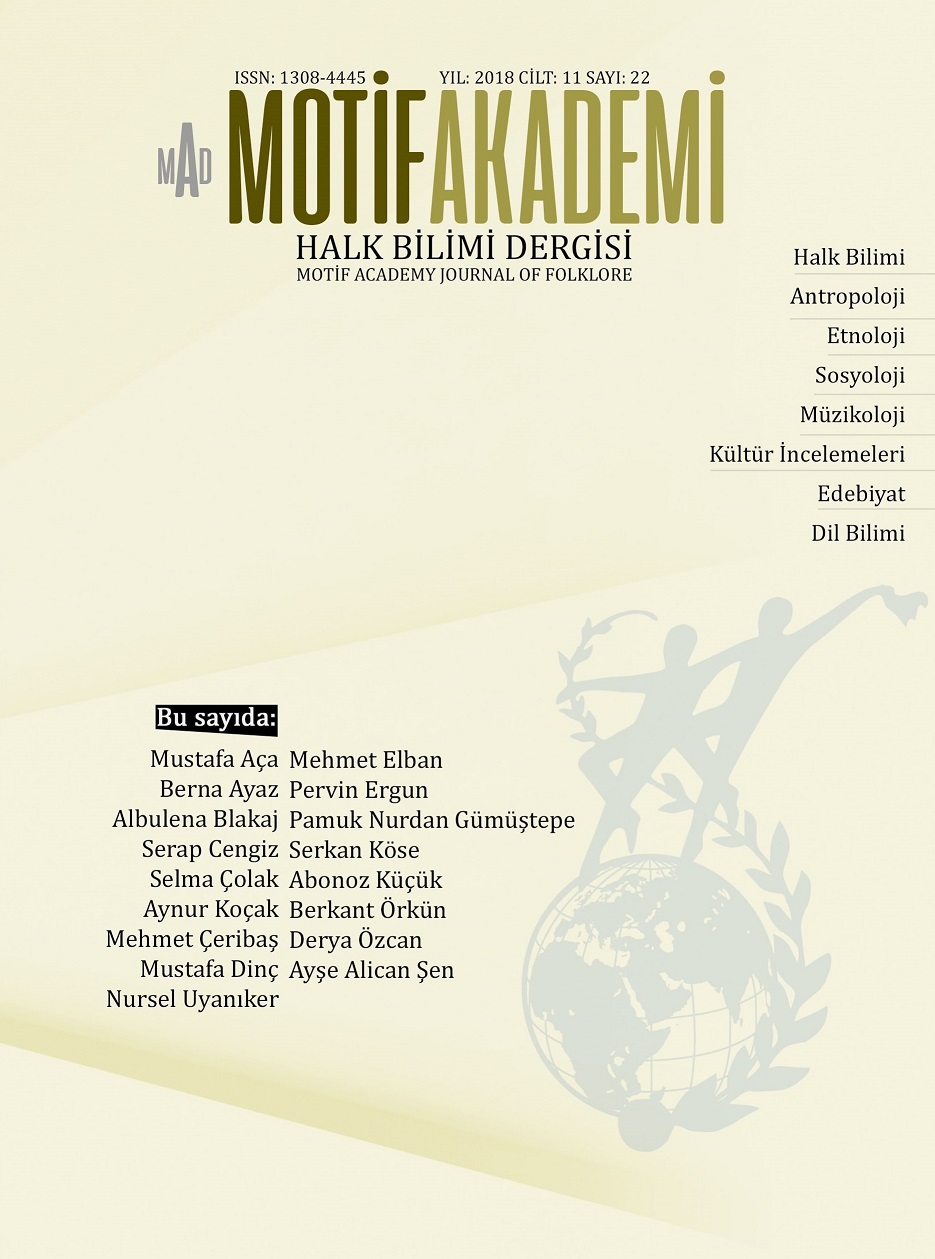GOETHES “KING OF THULE” AND IT’S TRANSLATIONS INTO ALBANIAN
GOETHES “KING OF THULE” AND IT’S TRANSLATIONS INTO ALBANIAN
Author(s): Albulena Blakaj-GashiSubject(s): Comparative Study of Literature, German Literature, Translation Studies, Theory of Literature
Published by: Motif Halk Oyunları Eğitim ve Öğretim Vakfı
Keywords: Ballad; German literature and language; reception; translation; comparison; Gege and Toske dialect;
Summary/Abstract: Johann Wolfgang von Goethe placed his poem “The King of Thule” on the mythical island of Thule, which is thought to have been the northernmost place in which the ancient Greek sailors had the courage to travel to. Because of the fact that this poem has been included in all versions of this play, it is perceived as a part of Faust, which is the most famous tragic play of Goethe. The fact that this ballad is a champion in terms of its translation into Albanian, adds importance to the present study, and is therefore selected for analysis. It was translated for the first time, probably round 1900, by Ndre Mjeda, a well-known Albanian poet, and then later on by 11 other translators. This artistic ballad, in the original, in German language, is written in an artificial and outdated poetic language - to make it sound like traditional folk songs. The aim of this article is to see the reception of this work into the Albanian literature. The comparison of the translations will try to give answers to the research questions emphasised in this article: which of them is closer to the original one and to exhibit what did the translators used, in order to save the idea of old language, besides rhyme, style and string form. The article also aims to see the differences between the translations into two different Albanian dialects (Gegë and Toskë), and to analyze which one is more suitable for this ballad.
Journal: Motif Akademi Halkbilimi Dergisi
- Issue Year: 11/2018
- Issue No: 22
- Page Range: 171-180
- Page Count: 9
- Language: English

